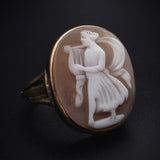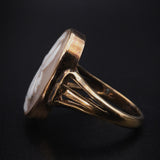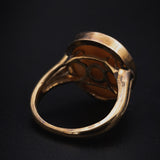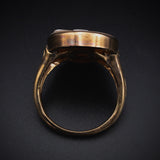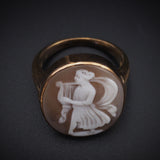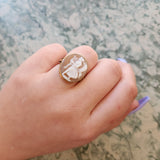Vestal virgins were chosen from highborn families and were granted privileges that would have been unimaginable for other women in Ancient Rome. They could own property, vote, and write a will. They had the best seats at public games, and they even had the power to free condemned prisoners and slaves. A condemned man on his way to his execution only had to catch a glimpse of a Vestal Virgin to be freed.
At the age of only six or seven, they were selected for the priesthood and sworn to celibacy for thirty years.
They lived in the House of the Vestal Virgins on the Roman Forum near the Temple of Vesta. Their duties included tending the perpetual fire in the Temple of Vesta, keeping their vow of chastity, fetching water from a sacred spring (Vesta would have no water from the city water-supply system), preparing ritual food, caring for objects in the temple’s inner sanctuary, and officiating at the Vestalia (June 7–15), the period of public worship of Vesta. Failure to attend to their duties was punished by a beating; violation of the vow of chastity, by burial alive (the blood of a Vestal Virgin could not be spilled).
Victorians were enamored with classic Roman and Greek styles, and much of their jewelry paid homage to the Ancients. This hard stone agate cameo ring depicts a beautiful maiden wearing the flowing robes like that of a Vestal Virgin, and so we have named her Amata, who was the first priestess chosen to the Order.
This little shell depicts a full figure woman who is likely a Vestal Virgin, with flowing garments, playing a lyre. This classic beauty was converted from an antique element and paired with an elegant reproduction shank, and adds a touch of class and mystery to any outfit or occasion.
Details (approximate)
Size (can be resized): 9
Weight: 3.91 grams
Materials: Gold, carved shell cameo
Metal: 14K yellow gold (shank); 9K yellow gold (setting)
Marks: None
Condition: Very good antique condition
LOE






